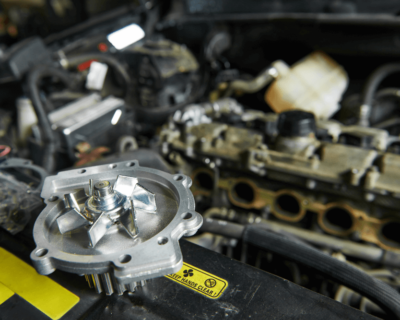Innovations in Industrial Automation Transforming the Future of Manufacturing
In the rapidly evolving landscape of manufacturing, the integration of cutting-edge technologies has led to significant advancements in industrial automation. This transformative shift is not only enhancing efficiency but also reshaping the way industries operate. Let’s delve into the key innovations driving the evolution of industrial automation.
1. Robotics and Cobots:
One of the most impactful innovations in industrial automation is the rise of robotics and collaborative robots, or cobots. These machines are designed to work alongside humans, enhancing productivity and safety. With advanced sensors and programming, cobots can perform intricate tasks with precision, freeing up human workers for more complex responsibilities.
2. Internet of Things (IoT):
The Internet of Things has revolutionized industrial automation by connecting devices and machinery, enabling seamless communication. IoT facilitates real-time data collection, analysis, and decision-making, optimizing processes and minimizing downtime. Sensors embedded in equipment provide valuable insights, enhancing predictive maintenance and overall operational efficiency.
3. Artificial Intelligence (AI) and Machine Learning (ML):
AI and ML are playing a pivotal role in industrial automation, enabling machines to learn and adapt. Smart algorithms analyze vast datasets, improving predictive maintenance, quality control, and process optimization. AI-driven automation is not only efficient but also capable of adapting to dynamic manufacturing environments.
4. Advanced Human-Machine Interface (HMI):
User interfaces have evolved to become more intuitive and user-friendly. Advanced HMIs provide operators with real-time data visualization, enabling quicker decision-making. Touchscreens, augmented reality (AR), and virtual reality (VR) interfaces enhance control and monitoring capabilities, improving overall system performance.
5. Cybersecurity Measures:
As automation systems become more interconnected, the importance of robust cybersecurity measures cannot be overstated. Innovations in industrial automation include advanced cybersecurity protocols to protect sensitive data and ensure the integrity of automated processes.
6. 3D Printing in Manufacturing:
Additive manufacturing, or 3D printing, is transforming the production of industrial parts. This technology allows for the creation of complex components with precision, reducing lead times and waste. 3D printing is particularly valuable in prototyping and producing customized parts on demand.
In conclusion, the ongoing innovations in industrial automation are reshaping the manufacturing landscape. From collaborative robots to artificial intelligence, these advancements are driving increased efficiency, flexibility, and competitiveness in the industry. As manufacturers embrace these technologies, the future of industrial automation promises a new era of smart, connected, and agile production processes.



